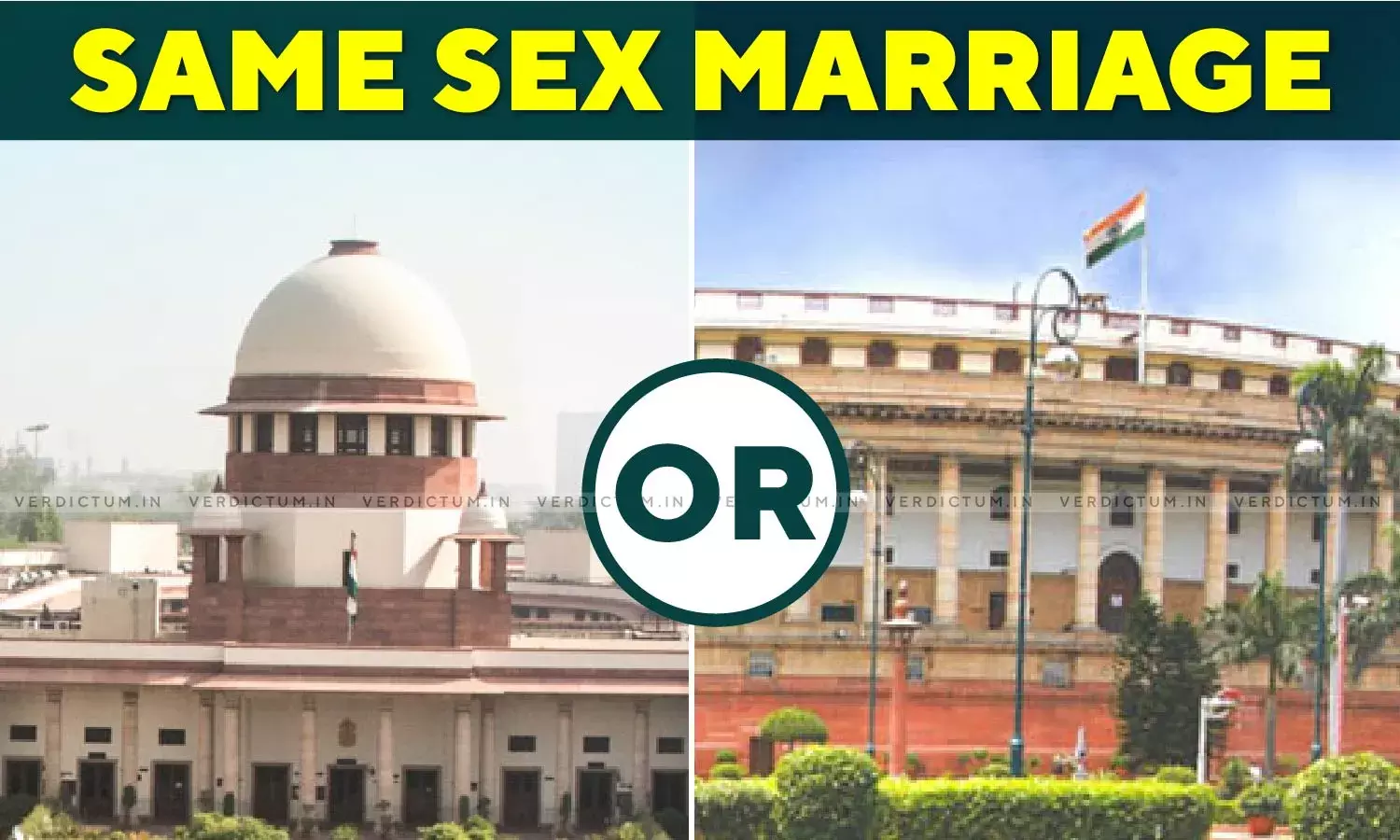Cannot Be Left To Discretion Of Courts: After BCI, Delhi District Bar Associations Object To Apex Court Hearing Same Sex Marriage Case
After the Bar Council of India (BCI), the Co-ordination Committee of All District Bar Associations of Delhi has urged the Supreme Court to leave the issue of same-sex marriage to the legislature i.e., the Parliament saying that such an issue cannot be adjudged by judicial interpretations.
The resolution passed by the Committee says that although the highest court of the land plays a pivotal and crucial role in upholding the rule of law and thus maintaining harmony in the society, "there are certain issues that are too complex and have far-reaching consequences that they cannot be left to the discretion of the Hon’ble Courts”.
The Resolution passed by the Coordination Committee says, “The issue at hand cannot be adjudged by means of Judicial interpretations because it requires a more extensive consultation process. The issues before the Hon’ble Court require extensive consultation with various stakeholders and affected parties. This process cannot be condensed into a single court case, as it requires ongoing dialogue and collaboration. Therefore, this issue should be referred to parliament, where a more extensive consultation process can take place.”
The Bar Association has expressed its displeasure on the day-to-day proceedings going on before the Constitutional Bench of the Supreme Court in the matter titled Supriyo @ Supriya Chakraborty versus Union of India [Writ Petition (Civil) No. 1011/2022] and other connected matters. The matters before the Apex Court pertain to granting legal status and recognition to homosexual marriages i.e. marriages of same-sex couples.
It says that the social ramifications of the ongoing proceedings before the Supreme Court are colossal and have the potential to have an unintended impact on the fabric of society.
“There are certain issues that are deeply entrenched in societal norms, values, and beliefs. These issues require careful consideration and public debate, as any decision or action taken without societal acceptance may have far-reaching consequences. Such issues require a broad-based consensus that can only be achieved through public debate and discussion”, further says the resolution.
It is suggested in the resolution that such issues that have the potential to affect society at large are discussed and debated in Parliament, where elected representatives can take into account the views and concerns of their constituents.
“Decisions made in isolation, without the benefit of the view of the society, are likely to be ineffective and may even be counterproductive. Such drastic change in law or policy must be made while keeping in mind the interest of the society as a whole, and this can only be achieved when there is broad-based societal acceptance. Therefore, it is important that such issues are debated in a democratic way in the Parliament, where elected representatives can take into account the views and concerns of their constituents”, says the resolution signed by Advocate Dr. N.C. Sharma, Chairman of the Committee and Advocate Raman Sharma, the Secretary General.
The Committee has pointed out in its resolution that the regulation and legalization of marriage can only be determined by the legislature through the due legislative process, which involves consultation with all relevant stakeholders as the legislative body reflect the collective wisdom and conscience of the nation and take into account cultural values, social standards, and other factors that define acceptable human behaviour when making decisions about regulating, permitting, or prohibiting human relationships.
It further points out, “… only a competent legislative body possesses the legislative wisdom to enact laws that govern human relationships in a manner that aligns with societal values and national acceptability. … Marriage and its incidental issues are blended with the social structure in a manner that it touches each and every individual on many levels including cultural, religious, emotional etc. The issue at hand requires wide consultative process and hence cannot be encompassed within the limited judicial adjudicatory precincts, therefore judicial intervention in the said matter is not advisable on the basis of equity and fairness as well.”
The resolution says that in a democratic setup, the duty of law-making is typically delegated by the electorate to its elected representatives and thus, the legislature would be best suited to foray into the new arenas of law-making, as per the evolving needs of the society.
“… any judicial endeavour to interpret the “legislative intent”, when none existed, would be rendered nugatory. … The issue of same sex marriage and its societal, psychological and medical impacts are at its nascent and experimentative stage and thus should be treated with utmost caution and wide consultation and discussions”, it concluded.
Earlier, the Bar Council of India (BCI) had urged the Supreme Court to leave the issue of same-sex marriage for legislative consideration saying that such an issue has long-term societal ramifications.




